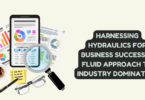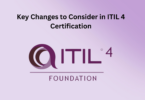
Understanding SAP testing Challenges & how to address them
In this highly competitive world, speed of change plays a crucial role in achieving many of the business objectives. However, in SAP world, speed of application delivery is a major concern. One of the reasons for this is delay in SAP testing. Enterprises that are using manual testing methods are struggling to keep pace with their digital transformation initiations. SAP test automation is considered as a viable solution that can help in achieving the required speed and efficiency to stay ahead of the competition. However, SAP test automation also presents some challenges when it comes to execution. In this article, we’ll discuss those challenges and propose a solution to address them.
The Challenges in SAP Testing
Lack of visibility into technical flow: To set successful test automation, it is necessary to identify your enterprise’s critical business processes. Whenever, you overhaul your business models to respond to market fluctuations, you need to understand business processes deviations. You need to test impacted areas to keep business continuity intact. However, without having clear understanding of business processes, you only rely on guesswork that eventually expose your business to risks due to inadequate test coverage.
Identification of test cases: QA teams often find it difficult to identify test cases that need to be executed at each release. Test engineers often select smoke/regression tests cases based either on their experience or on guesses. With this, enterprises get only 25%-30% of test coverage with 100% of efforts.
Test Script Maintenance: SAP is a highly dynamic application in which transports of changes are performed on a weekly or monthly basis to offer new functionality and for maintenance activities. Whenever changes are applied, test scripts need to be modified. Manually maintaining thousands of test scripts can be an extremely challenging task. Lots of efforts, resources, time and money is needed if maintained manually.
Test Data Management: Test data is an integral part of testing. Often, QA teams struggle to have adequate data sets for testing negative and corner case scenarios. Due to inadequate test data, comprehensive testing is not executed, leading to inadequate test coverage.
End-to-End Testing: Many enterprises have integrated their SAP instances with third-party apps like HRM, CRM, EDI, & productivity tools. Whenever enhancements are made or new updates are rolled out, these critical integrations need to be tested. However, many enterprises lag the ability to their ecosystem end-to-end. Many a times, multiple tools are used to test different apps, leading to additional costs.
The proposed SAP test automation solution
Since, you’re now aware of most of the challenges that enterprises face with SAP test automation, you need a quality assurance framework that not only address these challenges but also contributes towards your digital transformation initiative. Some of the features that proposed automation framework should possess are listed below.
Autonomous Process Discovery: Since setting up of test environment can be a daunting task, you need a SAP testing framework that captures and documents your existing configurations and baseline. This will help in setting up test environment in hassle-free manner without relying on guesswork and unscientific approaches.
Test Recommendations: Select a test automation framework that avoids over testing, prevent under testing and helps you achieve 100% test coverage. Test automation platform that can understand the impact of changes on existing business processes and recommends test cases based on the same.
Test Data Management: Get the SAP testing platform that automatically mines your configurations to capture relevant data sets and automatically feeds them during test execution. This will accelerate test execution while ensuring adequate test coverage.
Self-healing of Scripts: Select the testing framework that automatically heals the test scripts as per change impact assessment without requiring human intervention. It will make QA processes more efficient, swift & productive.
Supports End-to-End Testing: Select the test automation platform that supports end-to-end testing across multiple technologies along with S/4HANA, SuccessFactor, SAP Ariba, and SAP Hybris.






